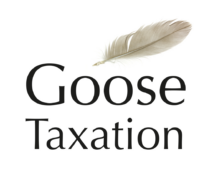Whether a business is a start-up or established, there is usually one short question I get asked at some point “Should I run my business through a limited company?” Although the question may be short, the answer can be rather long. There are many issues to consider, and is only tax is one of them. However, before any decision is made, you have to look beyond the tax implications.
So what’s the difference between self-employment and a limited company?
When self-employed, there is no difference between you and the business e.g., John Smith trading as ABC Widgets makes no difference – John Smith is the business. A self-employed business is taxed on the profits it makes, and not what the owner draws out for his or her personal use. If the business makes £20,000 profits and the owner draws £15,000 for their own use, the HM Revenue & Customs will tax the £20,000 and not the £15,000. The reasoning being the £20,000 has been generated by the business and whether it is saved or spent personally is up to you.
Self-employment is a good business vehicle for a start-up business. The tax breaks can be quite generous especially if startup costs were considerable in setting up and generate a loss. The loss may be used against other income in previous tax years (when you were, maybe, in employment, and paid tax), and this could generate a very useful tax repayment. A limited company loss in its first year, can only be carried forward against any future profits, so no tax repayment.
Limited companies are totally different to being self-employed. The main difference is that the company is a separate legal entity from that of the owner. If you own a limited company, you may own all the shares from the start or be a director, but the company is still a separate legal being.
Where some owners make a mistake with companies is that they treat the company bank account as if it was their own. What you must consider that any personal money drawn from a company may have tax implications, unlike that drawn if you were self-employed. Generally, money drawn from a limited company mainly goes through the PAYE system, or paid via dividends. These are two of the more established methods, but there are a number of other ways, too detailed to go through here.
Taxing the limited company
Limited companies are charged corporation tax on the profits it makes after deducting any salary paid to its owners through PAYE. Don’t forget that the salary will subject to Income Tax and National Insurance so there is no escape. However, if you plan to draw all the company profits out for your own use, then the PAYE system may hit you at the higher rates of tax still and may even cost more than being self-employed.
Pros and Cons of running a limited company
Each business is different, and some accountants also have differing views, but in my experience, it has led me to suggest the following are trigger points to consider trading through a limited company:
- If your self-employed profits move you into the higher rates of tax then trading through limited company where the corporation rate of tax is lower can have some attraction.
- You wish to build up assets in the business, thereby reinvest profits in the business and not draw them all out for personal consumption.
- A sole trader is held personally liable for his business borrowings and to any creditors if his business fails. He or she will also be held personally liable for any claims that are not covered by insurance. A limited company may offer some protection to the owner against this risk.
- You are taking on more staff, rental obligations etc., and related responsibilities
- You want to attract investment in your business, which is easier through limited company than self-employment.
- Status of having a limited company, possibly looking more impressive, professional and a bigger organsiation than you actually are.
- Your customers prefer to deal with a limited company than a sole trader.
- It is easier to sell a business trading as a limited company than that as a self-employed entity, as the business structure is ring-fenced and may just mean a transfer of shares.
But beware of the pitfalls:
- Without careful tax planning, you may end up paying more in tax overall than if you remained self employed
- You will be required to have a limited company bank account – you cannot use your existing personal one. (Remember a limited company is a separate legal being from you)
- Can you deal with the additional administration?
- Accounts have to be filed at Companies House each year and therefore available for public inspection.
- Accountants fees will be more than if you were self-employed.
- PAYE will need to be operated for your own salary and any employees.
- The HMRC take a very dim view if it is proved that the sole purpose of the limited company was to save tax – and they can undo any tax savings! Do ensure that you have a solid commercial business reason in place for using a limited company rather than just tax driven.
- Beware something called IR35 – a HMRC device to catch those trading through a limited company when working for a client or customer, when you should have been an employee with them.
Setting the company up
If you think a limited company will be ideal for you, so how do you get one set up? It is surprisingly straightforward. You can set it up yourself via Companies House (go to www.companieshouse.gov.uk) for a reasonable fee or go through an agent. Before you get the card ready, make sure you have the following known:
- a company name. You can scan Companies House to see if someone else has taken the name already.
- Where do you want the company address to be? Some use their home address
- You will need at least one director and at one shareholder. In most cases, the director and shareholder is the same person if it is a one-person limited company.
- Details of the company shares. These will normally be Ordinary Shares and the shareholder will own these and be entitled to dividends (Dividends are a distribution of company profits normally at the end of an accounting year)
Once registered, you will receive a Certificate of Incorporation. This is the company birth certificate. This Certificate is an important document for this will be needed to be shown to your bank as proof of the company existing when you open a new company bank account.
Running the company
Nothing magical here compared to that of being a sole trader, but there is added emphasis on keeping good books and records on a timely basis (not a mad rush at the end of a tax year!) that show the company accounts as a true and fair view. The important issue is to be aware of filing deadlines, for Companies House and HM Revenue & Customs as they can be different, and the main ones are listed below – missing them can lead to hefty penalties:
Companies House filing
File the first accounts – 21 months after the date of incorporation
Filing annual accounts thereafter – 9 months after company year end
HM Revenue & Customs filing
Paying Corporation Tax – 9 months plus 1 day after your period/year end
Filing the Corporation Tax Return – 12 months after your accounts year end date
In addition to the above, as a director you may be liable to submit your own Self-Assessment Tax Return as well, certainly if you have income from other sources.
Note: The above is for guidance only and should not be considered as advice. Each business is different, so please seek professional input before taking any action.

